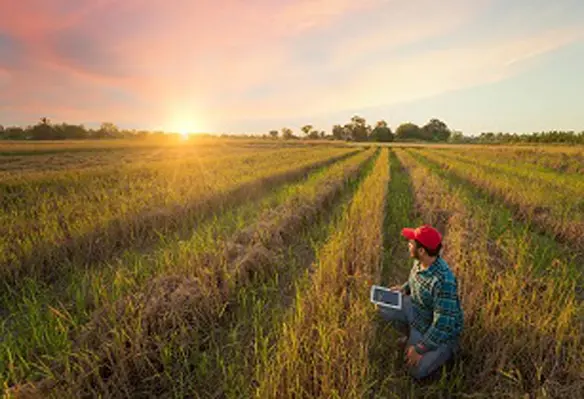BASF has presented the latest advancements in its agricultural innovation pipeline of crop protection, seeds and traits, and digital solutions
Their focus is to provide much-needed solutions for farmers to overcome local and crop system specific pest pressures, climate challenges, changing regulatory requirements and rising consumer expectations. Executing on its strategy in agriculture announced in 2019, the company is directing its innovations to improve outcomes for major regional crops, such as soy in the Americas, fruits and vegetables in Europe and rice in Asia Pacific. The value of the innovation pipeline remains strong, with an estimated peak sales potential of more than US$8.06bn fuelled by products launched within the next 10 years.
“Our goal is to become an ever more integrated provider of agricultural solutions and to expand the options we can offer to farmers. This is why we continue to invest substantially across our broad pipeline of agricultural technologies, with €944 million (approx. US$1.015bn) spent on Research & Development in 2022,” said Dr Livio Tedeschi, president of BASF Agricultural Solutions. “Farmers can continue to rely on us to innovate and deliver new active ingredients, innovative formulations, and traits to get more value from their production, both economically and environmentally.”
“Our pipeline demonstrates that we are not only leveraging our deep expertise in chemistry and environmental sciences, but also matching it with leading biotechnology and digitalisation approaches for next generation solutions,” added Dr Peter Eckes, president R&D and Regulatory of BASF Agricultural Solutions. “BASF’s industry-leading weed-control pipeline is a premier example of how our multidisciplinary approach yields solutions that balance the needs of farmers, society and the environment.”
Broad portfolio of solutions to improve outcomes in rice in Asia Pacific
Farmers growing rice – the major crop for the main continent of Asia – face growing pressure from resistant weeds, diseases, and pest insects. BASF actively supports farmers to overcome these challenges through a broad portfolio of technologies. Multiple new chemistries and formulations are expected before mid-decade aimed at improving outcomes in rice:
• A new insecticide mode of action for rice hopper control is under development by BASF in collaboration with industry partners. With no cross resistance to market standards, it provides long residual control and a favourable regulatory profile. BASF has accelerated the development of the insecticide to reach farmers in Asia Pacific by mid-decade.
• BASF’s new Luximo herbicide belongs to a chemistry class that was the first new mode of action classification update introduced in the last four decades. Controlling a broad range of problematic weeds in rice that have developed resistance to other modes of action, it will be an important tool in rice weed management and crop protection programmes. Luximo will be launched in Indonesia in 2024, with other countries in the Asian market to follow by mid-decade.
• Kixor CS is a new herbicide formulation of Kixor Active that can be applied beyond pre-emergence to early-post, providing growers the flexibility to apply further into the season. The innovative encapsulation of the herbicide provides a physical barrier that increases crop safety while enabling long-lasting residual control of broadleaf weeds. Farmers in Asia Pacific can expect to use the new technology in rice mid-decade.
• Revysol-based products will be launched within the next two years to control major diseases in rice such as sheath blight, and dirty panicles. These new formulations will be available to rice farmers in the region under the product names Cevya, Mibelya, and Revyrize.
• Seltima Plus is a disease management solution for rice with built in resistance management that will be introduced in the region in the next years. The combination of two fungicides provides yield and seed quality increases over market standards. In 2022, registration was granted in Indonesia with India, China and other countries to follow.
• The Provisia rice system and Clearfield production system for direct seeded rice enable growers to continuously make better use of the limited arable land and are an alternative to wet paddy cultivation. These yield-preserving technologies will debut in India, Malaysia, Thailand, and the Philippines in the second half of the decade. Additionally, Provisia will enter the Chinese rice market by 2025. As an introductory step, BASF announced a long-term partnership with Seedworks Philippines to introduce BASF’s non-GM trait for Provisia herbicide-tolerance into the Philippines’ hybrid rice market. This collaboration is one of 10 different seed partnerships across five countries in Asia that will launch Clearfield and Provisia herbicide tolerant traits in rice.
• The decision-making quality of xarvio FIELD MANAGER is continuously improving to optimise sustainable rice production in Japan. To support more efficient use of pesticides, BASF is updating the platform with new insect pest models expected to be available by 2025. Disease models will also be enhanced to support more precise fungicide timing, dosing, and product selection recommendations. Owing to the accurate, and continuously improving model-based insights, xarvio has evolved into the de facto standard tool for crop protection.




